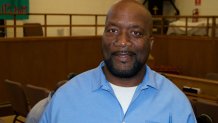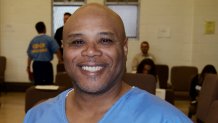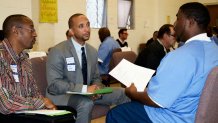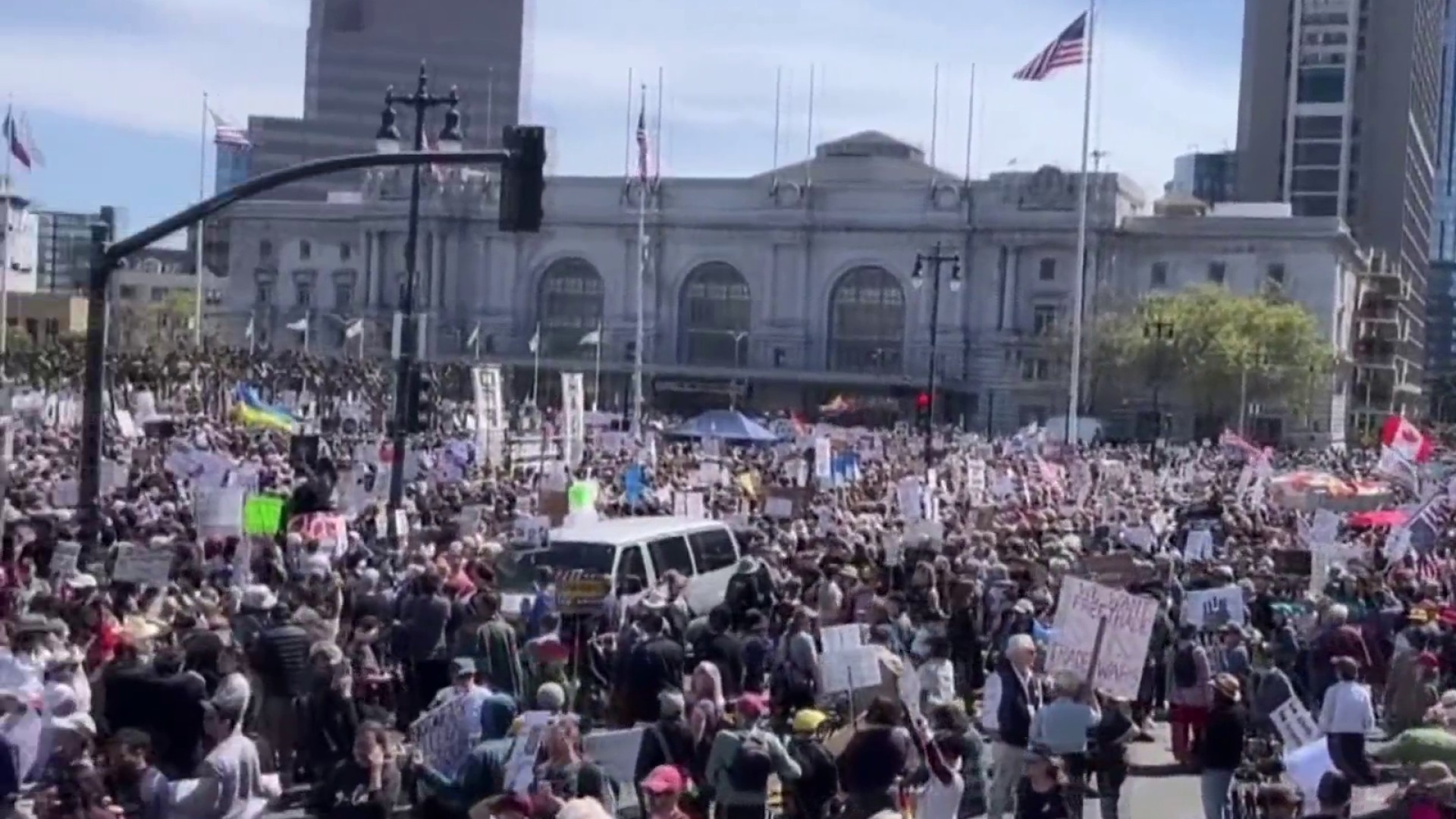San Quentin State Prison held its third job fair with 44 current inmates hoping to connect with employers before they’re set to release.
It’s been 30 years since Willie Bridges has been a free man. But with a parole date set for just four months away, he’s now looking for a job — and he might have just found it.
San Quentin State Prison held its third job fair earlier this month with 44 inmates, including Bridges, hoping to connect with employers before their release date.
After being sent to prison when he was only 20, Bridges now hopes the Prison Employment Readiness Program will help him regain his footing in the world.

"I want to do a start over and I feel that this is the best opportunity for that," Bridges said.
The program was born two years ago when Nelson Theodo Butler, an inmate at San Quentin, was about to appear before the parole review board.

"When you go to the board, one of the things they want you to have is a job,” Butler said. “Well, I’m not from the Bay Area, so I don’t have a lot of family and people here and a lot of connections to get a job. I was like, ‘Well, what do I need to do in order to do that?’"
Local
Lucky for him, a volunteer for the prison’s reentry program heard about Butler’s idea.
"My first impression was that it was a very ambitious idea,” said Diana Williams of San Francisco, who volunteers at the prison. “He was very passionate about it. Given that he was in prison and had limited resources to make it a reality, I thought it was something I could help with on the outside."
Williams traveled to job fairs and met with employers to gauge interest in the program.
"I actually just started calling employers — just literally making phone calls and seeing where the interest was,” she said. "At the time, and I think it’s changing now, there was more of an underground group of employers who were hiring ex-felons. It took me a while to tap into that."

The first job fair brought 10 employers to the prison. Today, the program has grown to 31. All inmates have to complete a 12-week job readiness program before they get to meet the employers, where they are trained on resume writing, launching a job search, and how to discuss their criminal history among other things.
"We also meet with all the men individually before the job fair day to make sure they are prepared," Williams said. "They have homework to turn in that includes an essay on how they envision the future for themselves."
Several job sectors were represented including the restaurant, construction, maintenance and healthcare industries. Potential employers included Cala Restaurant, Home of Chicken and Waffles, Goodwill Industries, District Council 16 and Pit Stop.
The job fair is one of 60 programs in the prison, according to Steve Emrick, community partnership manager at the prison.
One of the main goals for organizers is to find a good fit between inmate skills and employer needs.
“[The employers] said that they would hire an ex-felon, if we brought them someone that was qualified," Butler said. "I remember one guy. He got out on a Monday. By Wednesday, he was working for one of the companies that came in for the job fair.”
Butler knows many people are hesitant about hiring men like him, but he hopes the program will help inmates find a place in society as soon as they are released.
"Once people hire us, they see that not only do I want the job, but I’m willing to work twice as hard as the next guy that has never been to prison, because I have to prove myself,” he said. "I have to prove to you that I am capable of this job, that I want this job and I will do anything — legally — to keep it."
One of Butler’s main goals is to make sure that once released, former inmates don’t end up behind bars again.
"That fact that you have a job is important, because if nothing else, it gives you a sense of worth. It says that I can do the right thing and when I do the right thing, I will get rewarded for it,” he said.
Butler hopes to help out with the job fair until his next parole date in 2018.
"I would really like to reach out to any industry that is hiring and willing to hire my guys," Butler said.
Williams said the program, aside from connecting inmates with potential employers, is a good way to reflect on life.
"A lot of this is really about getting to know themselves better so they can find out who they really are and what they have to offer the world," he said.



